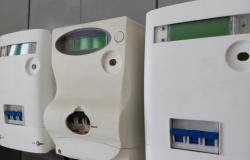With the ever-high focus on energy issues and the stability of supplies, natural gas stocks within the European Union stand just below the 59% threshold, a figure that represents a significant indicator for the bloc’s energy security . According to updates provided by the Agsi platform of Gie (Gas Infrastructure Europe), a large association that coordinates 70 operating companies in 25 European countries, current natural gas reserves amount to 671.1 terawatt hours (TWh), equal to 58.81% of the overall capacity and 17.84% of the average annual consumption, which is 3,760.87 TWh.
Germany remains in first place in the Union for the quantity of gas stored, with 166.25 TWh available, which is equivalent to approximately 65.26% of its internal storage capacity and 18.7% of the German annual consumption which reaches 888.83 TWh. It is a fact that highlights Berlin’s strategic focus on maintaining high inventories in anticipation of potential crises or supply interruptions.
Italy follows closely, placing itself in second place with reserves of around 114.07 TWh, equivalent to 57.91% of its storage capacity and 15.19% of national annual consumption, estimated at 750, 6 TWh. A figure that demonstrates the importance given by the country to storage policies in view of the winter season and fluctuations in international energy markets.
The Netherlands is positioned as the third largest holder of gas stocks, with 76.52 TWh representing 53.69% of its storage capacity and 24.51% of Dutch annual consumption, confirming its critical role in supply and in the distribution of natural gas in Europe.
Unlike these three countries, France shows relatively lower levels, with inventories at 37.26% equal to 50.06 TWh, which constitute only 11.34% of the French average annual consumption of 441.28 TWh. This percentage highlights the need for France to implement strategies aimed at increasing its supplies or diversifying energy sources to reduce vulnerability on the energy front.
The overall European data on natural gas stocks, despite the various levels between individual states, appears to be a sign of a certain resilience of the European system, especially in a context of uncertainty linked to geopolitical tensions and significant variations in production and global energy supply. Joint efforts to maintain and, when possible, increase these stocks are essential to ensure that the European Union can deal promptly with any possible adverse scenario in the global energy landscape.






